Game-changer: Iran-Russia military cooperation in new multipolar world
By Shabbir Rizvi
Russian Defense Minister Sergei Shoigu visited Tehran last week and held meetings with top Iranian military leadership, including the Chief of the Staff of the Iranian Armed Forces General Mohammad Bagheri and Defense Minister Brigadier General Mohammad-Reza Ashtiani.
Shoigu, heading a high-ranking Russian military delegation, was in the Iranian capital on the official invitation of General Bagheri, who welcomed him during an impressive ceremony in Tehran.
Shoigu was invited to Iran to discuss “defense cooperation” between the two all-weather allies.
The two countries have historically been the favorite targets of Western aggression: from sabotage attacks to economic sanctions meant to destabilize their economies.
Both countries have, however, held course despite all such oppressive measures and pursued independent policies to strengthen their respective economies and bolster bilateral cooperation.
Shoigu and his accompanying delegation appeared to be in positive spirits while meeting their Iranian counterparts. Shoigu was particularly vocal about the positive relations with Iran’s top leadership.
‘“The pressure of sanctions on Russia and Iran is proving to be futile, while Russia-Iran cooperation is reaching new highs,” Shoigu lauded, as cited by local Iranian media.
The Islamic Republic’s ability to operate independently and create a healthy national economy despite Western meddling has proved very fruitful. It has recently been included in the BRICS (Brazil, Russia, India, China, South Africa) economic alliance, as well as the SCO (Shanghai Cooperation Organization).
Naturally, it is important for Iran to consider security issues to protect its interests within these organizations, and Russia is a natural ally in this context as it is also a member of both groupings.
In a growing multilateral world order, which many are referring to as “Multipolarity” as well as “The End of Americanism” (see President Ebrahim Raeisi’s historical speech), cooperation based on mutual trust and benefit holds the key.
However, the remnants of the dying US-led unipolar world order will try to sow disorder as they fight off the inevitable new reality shaped by new emerging powers.
Projects within BRICS countries as well as SCO countries have notably been subject to Western-backed sabotage. Most notable would be the destruction of the Nord Stream-2 pipeline which impacts Russia’s ability to deliver gas to western Europe.
Other examples include terrorist attacks on the China-Pakistan Economic Corridor by the Turkistan Islamic Party (TIP), Takfiri terrorists that were once on the US list of terror groups but have since been removed as they play a role in the US strategy of destabilizing targeted countries.
The US use of proxy forces to conduct economic sabotage and destruction is a serious threat to regional development and stability as Iran has repeatedly warned about.
Iran’s induction into BRICS and the SCO means it will need to take significant steps to bolster security, as the country itself is embarking on specific projects meant to facilitate trade in the region - this includes a railway linking Iraq all the way to Syria and a gas pipeline between Iran and Pakistan.
These projects will help facilitate regional independence for countries and incentivize less reliance on trade with predatory Western countries. With Iran joining two economic alliances that are going to shape the new world order, it can count on Western-backed disruption to regional projects.
Despite both BRICS and the SCO being economic alliances, in order to ensure their success, the defense of their ambitious projects must be factored in.
The meeting between Shoigu and Secretary of Iran's Supreme National Security Council Ali Akbar Ahmadian was a key moment for discussing the looming threat of Western sabotage seriously.
The meeting stressed “enhancing regional cooperation to achieve collective security” as being “one of the most effective ways to end foreign interference in the region.”
This is a particularly important equation - foreign interference has either been the United States and its allies overtly or its various proxy forces covertly.
As Iran and Russia strengthen the reality of a unified “Eurasia,” it would be in both countries' interest to secure regional interests - and to expel the threat of Western sabotage completely, as implied in the latter part of the statement.
A mutual understanding of adversaries in the region is a first step that cannot be ignored.
Already, Iran and Russia’s incalculable assistance in Syria can prove the importance of understanding this equation. A unified effort to expel Western invaders and their proxy armies has led to a hard-fought victory for Syrian President Bashar Al Assad – to the point that the Arab League and other countries that once turned their back on Syria are now being forced to accept reality – Syria is here to stay.
Iran has also gained much experience lately in conducting anti-terrorist operations on its borders. It has continued its liquidation of Daesh networks on its borders - not to mention years of experience fighting Daesh terrorist forces in Iraq and Syria.
This week alone, Iranian intelligence forces thwarted at least 30 bombings at populous areas of the capital Tehran, arresting 28 operatives affiliated with the Daesh Takfiri group.
In this arena, Iran is highly skilled. Iranian intelligence services have also been fiercely exposing and shutting down internal terror networks associated with terrorist organizations such as MeK all the way to Kurdish separatists and Mossad.
Russia would be very interested in Iran’s anti-terror approaches - and vice versa. Russia has been subject to internal terror plots as its military operation in Ukraine continues, including bombings in Moscow and drone attacks on civilian bridges.
A “skillshare” and an open line of communication between the two countries' intelligence forces could result in protected trade routes and corridors, as well as routing out existing hostile forces.
Furthermore, Iran’s weapons, particularly new military technology that includes drones, missiles, and radar systems - are also highly attractive to Russia, and the Russians do not shy away from admitting this.
During the meeting between the two sides, Shoigu inspected some of the latest Iranian military hardware, which is also notably on display in Moscow.
It is becoming undeniable that Iran’s military hardware is a game-changer. Iran’s drone program, particularly the Shahed and Mojaher systems, are so sought after that demands are outpacing production - multiple countries have expressed interest in purchasing them.
There is also Iran’s hypersonic missile, “Fattah.” Currently, the only countries in the world with Mach 5 capabilities are Russia, China, and Iran. Iran joined the former this year, with an extremely successful demonstration of the Fattah missile.
Russia has reportedly used its own Kh-47M2 “Kinzhal” hypersonic missiles to strike targets in Ukraine. Although Iran is neutral with respect to Russia’s military operation, proposing dialogue instead of escalation, it could potentially work with Russia to supply Fattah missiles for defensive purposes.
Speaking of which, Russia is also in a unique situation with its military operation in Ukraine. Billions of dollars worth of NATO equipment have been provided to Ukraine in order to stop the Russian advance.
Russia has not only destroyed many of these highly coveted weapons of war, but also captured intact equipment including tanks, rocket launchers, MLRS (Multiple Launch Rocket Systems), and more.
Being able to reverse engineer NATO weaponry and exploit its pain points is highly valuable information that Iran would be interested in - especially as these weapons are often wielded by forces hostile to Iran.
If the objective of the meeting in Tehran is deterring the West, then a serious transfer of information obtained on NATO weapons to Iran would be in order. Anything less than a delivery of this vital information is not taken seriously.
This is just the first official defense meeting with Iran’s ascension into BRICS. In Shoigu’s declaration of “reaching new levels” of cooperation with Iran’s military, more meetings will commence as the countries draft various security agreements to protect the region and build multipolarity.
We can also expect more joint military drills between Iran and Russia - similar to the drills held in the Sea of Oman between the two countries and China earlier this year.
Lastly, we can also expect the West not to leave the region gracefully, despite the odds becoming increasingly against them.
Come whatever may, the new alliances - formed by economic mutual cooperation - have a chance to bring much-needed stability and prosperity to the entire “Eurasian” region.
To invoke President Raeisi, it is indeed the end of “Americanization.”
Shabbir Rizvi is a Chicago-based political analyst with a focus on US internal security and foreign policy.
(The views expressed in this article do not necessarily reflect those of Press TV)
Israel ‘serious obstacle’ to nuke-free West Asia: Iranian diplomat
High-profile Israeli-American brothers on trial for sex trafficking and assault
Settlers served lavish lunch in Israeli prison holding fasting Palestinians
VIDEO | Press TV's news headlines
Hezbollah says won’t hesitate to take proper action against aggression
Iran to US: Sanctions and war failed; try diplomacy and respect
VIDEO | Afghanistan-Pakistan tensions rise after cross-border strikes
Israeli settlers set mosque ablaze in West Bank during Ramadan


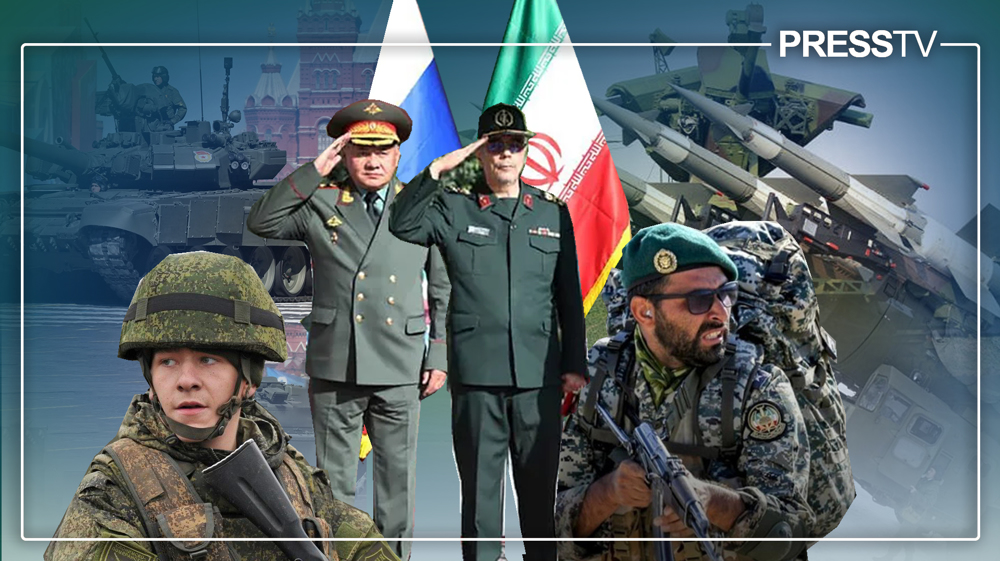
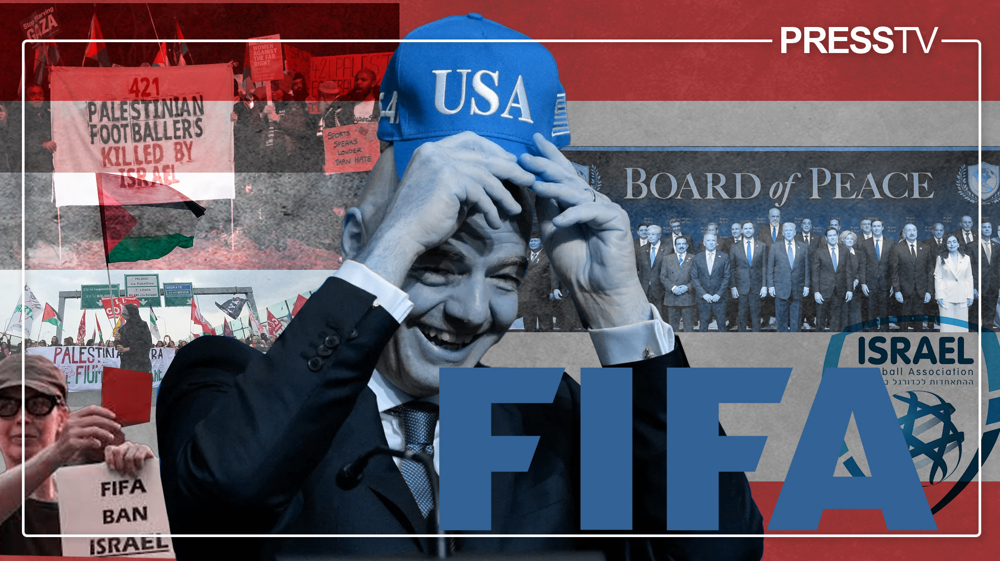
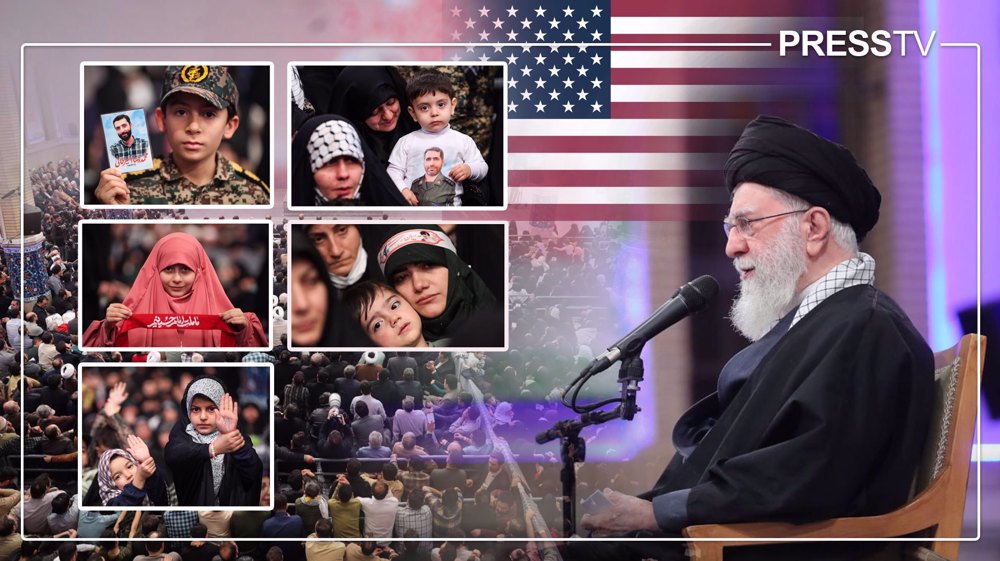
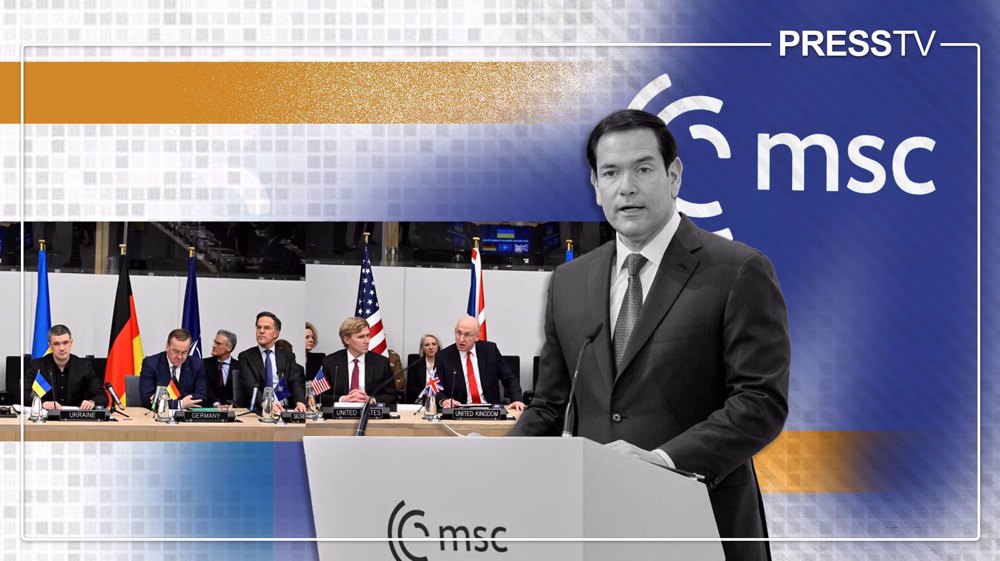



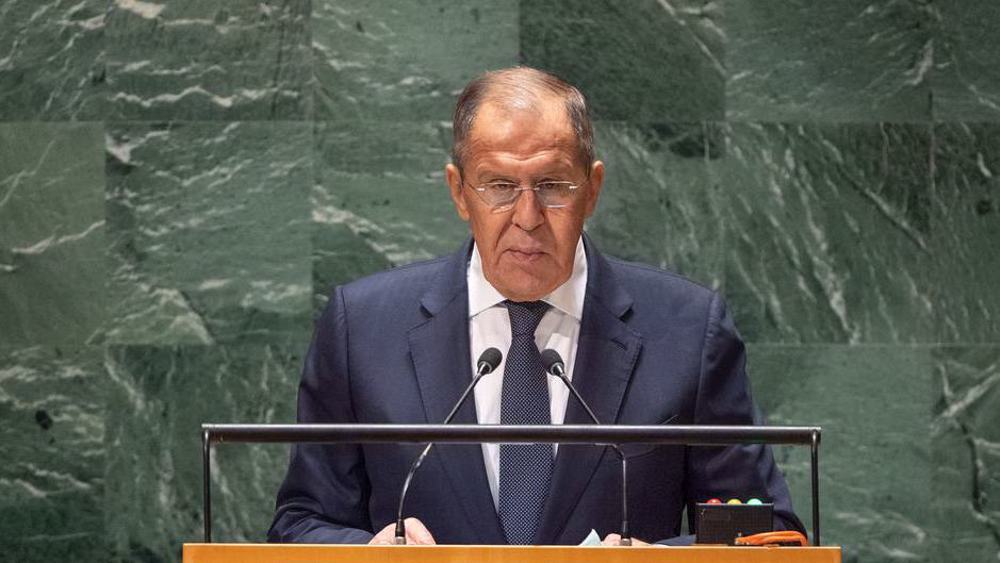
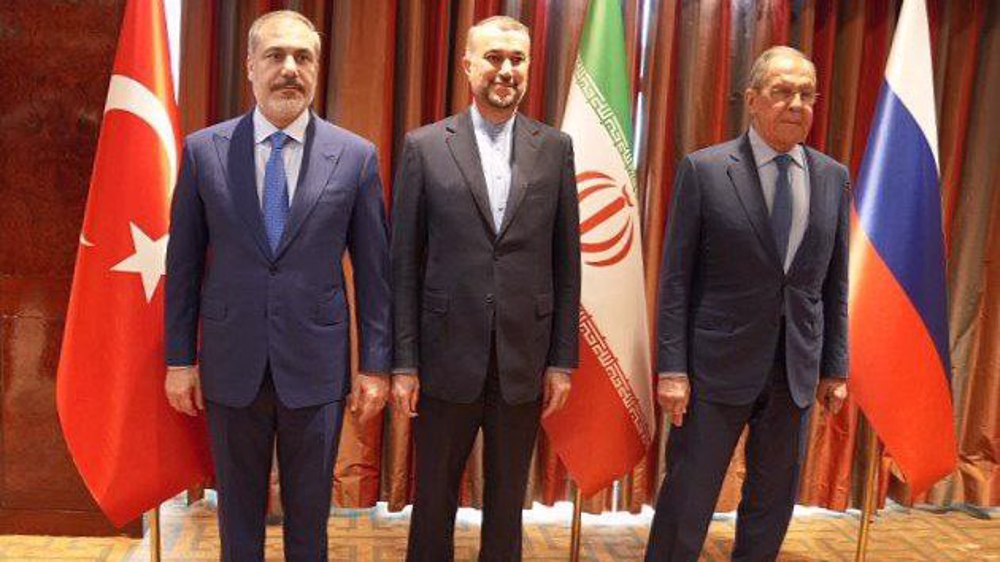
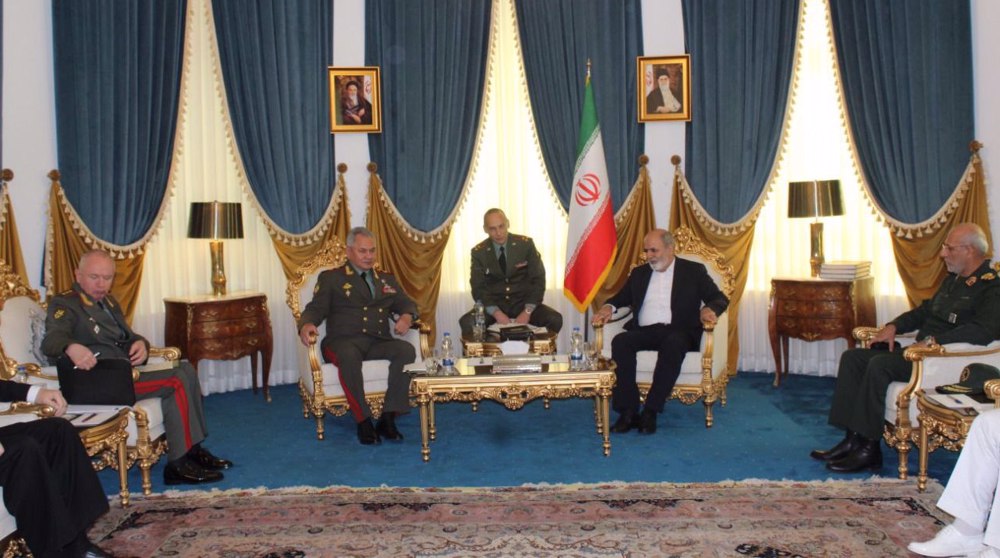
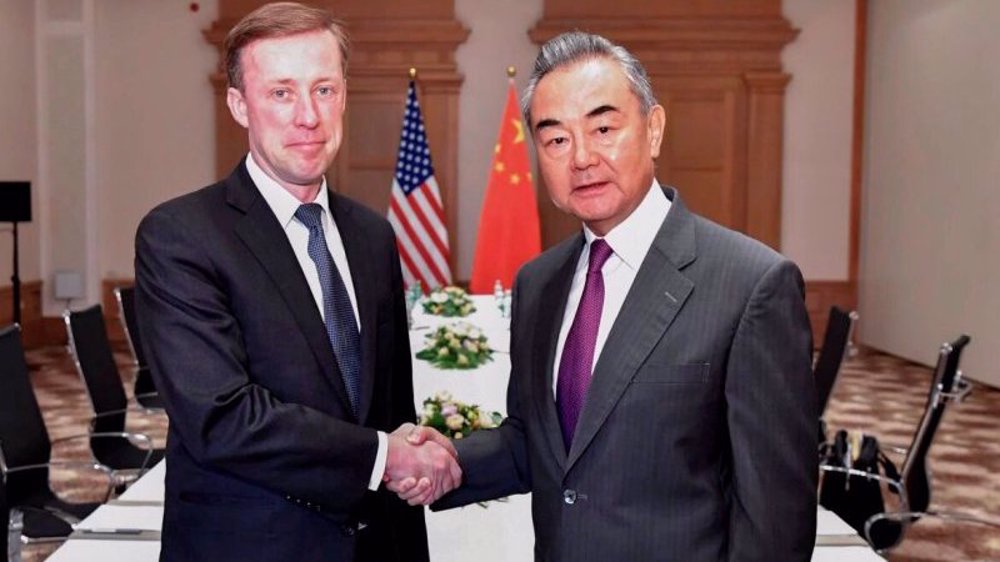
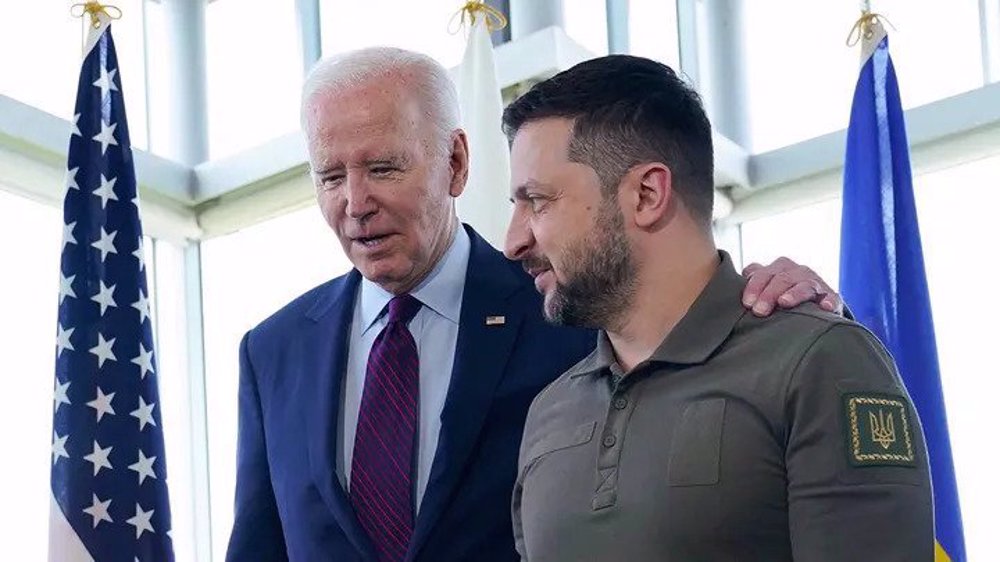

 This makes it easy to access the Press TV website
This makes it easy to access the Press TV website